Antibiotics alone, diet alone or the combination of the two will not cure SIBO unless your specific underlying cause(s) are identified and addressed. However, a science-based diet that limits ALL fermentable carbohydrates should be used as the first line therapy over antibiotics because:
-
The diet approach is safe and provides a durable response
-
Your underlying cause may be simply the over consumption of fermentable carbohydrates
-
Antibiotics have no proven durable response, yet carry side effects and health risks
SIBO and Its Potential Underlying Causes
SIBO stands for Small Intestinal Bacterial Overgrowth. It’s a condition where too many bacteria migrate from our large intestine and overgrow in our small intestine. Typically, our small intestine contains few bacteria, particularly in the early part where our own critical digestion takes place. But if you are SIBO positive, too many bacteria are growing where they do not belong, and you will experience varied symptoms as a result.
Due to easy access to non-invasive breath tests, more people are being diagnosed with SIBO than ever before. And now SIBO is linked to many digestive and other health issues. The following SIBO-related conditions explain the high number of SIBO-positives in the US alone:
- Acid Reflux and LPR: 60 million
- Irritable Bowel Syndrome: 50 million
- Rosacea : 32 million
- Autoimmune diseases (all): 24 million
- Fibromyalgia: 5 million
- Interstitial cystitis: 3 to 8 million
- Celiac Disease: 3 million
- Rheumatoid arthritis: 1.3 million
- Sjögren’s syndrome: 0.5 to 3 million
- Crohn’s Disease: 600,000
- Cirrhosis: 400,000
- Chronic pancreatitis: 150,000
- Cystic fibrosis: 30,000
Due to a variety of potential underlying causes listed here, it’s impossible to conclude that antibiotics, diet, or even a combination of the two will “CURE” SIBO across the board:
- Altered motility
- Ileocecal valve issues
- Surgery, structural abnormalities, intestinal scarring
- Inflammation, GI infections
- Digestive enzyme deficiency
- Loss of stomach acid
- Immunological deficiencies
- Alcoholism or liver problems
- Underlying genetic conditions
- Overconsumption of fermentable carbohydrates and many more
The greatest success will be achieved if you are able to identify and address the specific cause(s) of your own SIBO. Given this fact, let’s take a look at the effectiveness of both Antibiotics and Diet for SIBO.
Should You Take Antibiotics for SIBO?
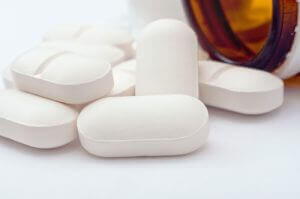
Keeping them contained in the right place (i.e. in the large intestine) seems like the best strategy. Also, we don’t want to kill off indigenous small intestinal bacteria that have their own role in digestion and gut health. Many intestinal bacteria are highly resistant to antibiotics or quickly become resistant. You can already see some of the challenges in treating SIBO with antibiotics. But the biggest challenge is their lack of effectiveness and a variety of risks associated with antibiotics. And antibiotics don’t address the underlying causes.
There is scant evidence in the scientific literature that antibiotics cure SIBO or even suppress SIBO and its symptoms long term. And the result is frequent retreatment. A good example is rifaximin, approved for treating IBS in May 2016. This study showed that 68% of SIBO-related IBS–D patients who needed to be retreated with rifaximin, required a second retreatment. And some in the group were retreated up to 5 times. Another study looking at retreatment found that the efficacy of retreatment was also questionable. It was only 33% successful vs 25% with placebo, not particularly encouraging.
The US Department of Veterans Affairs in their 2016 evaluation of rifaximin stated: “The risk of developing bacterial resistance with long-term or repeated treatment with rifaximin remains an important concern that may outweigh the relatively small benefits provided by rifaximin therapy in IBS-D. The cost of rifaximin also weighs against the frequent use of rifaximin for IBS. Rifaximin for IBS should be restricted to patients who have the IBS-D subtype and have not responded to effective and less costly symptom-based alternative therapies” which included diets that restrict fermentable carbohydrates. In other words, they recommended diet over antibiotics as a first line therapy.
Clearly, views on new science-based diets are changing. You might be surprised to learn that according to a recent Survey of 1500 Gastroenterologists showed that “91% felt that IBS diets were as good or better than medical therapies for IBS.”
Aside from rifaximin, a variety of other antibiotics have been used for SIBO in the past including metronidazole, colistin, levofloxacin, ciprofloxacin, doxycycline, amoxicillin-clavulanate, trimethoprim-sulfamethoxazole, cephalexin and norfloxacin. Though a couple small studies on norfloxacin and amoxicillin-clavulanic and metronidazole and colistin provided some encouraging results, longer term studies are needed with more subjects. And new studies should also look at the effectiveness of retreatment for participants who revert to SIBO-positive as well as side effects, health risks and the impact on the microbiome.
How About Herbal Antibiotics?
Many herbal extracts are known to possess antimicrobial activity. But individual herbal extracts tend to be less potent than synthetic antibiotics. Therefore, they are often used in combination. While a variety of these extracts have been proposed as possible treatments for SIBO, there is not much published data on the efficacy. Recently, a small study found that a combination of herbal antibiotics was at least as effective as rifaximin, but we need more definitive studies to confirm these results. Also, keep in mind that rifaximin is only 10% better than placebo, so the bar is set fairly low.
Someone asked me recently, “Is diet enough for SIBO or do I need to take an antibiotic?” One could easily turn this question around and ask “Are antibiotics enough for SIBO or do I need to change my diet?” The answer to this question is a resounding NO for antibiotics and YES for diet.
Are Dietary Changes Effective for SIBO?
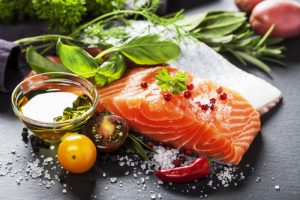
Let’s Take a Look at This Idea More Closely
In the past, many of the symptoms we now associate with SIBO (intestinal gas, bloating, distension, diarrhea, etc.) were recognized as carbohydrate intolerance. Sound familiar?
Carbohydrate intolerance is a form of malabsorption that can lead to dysbiosis, a general imbalance of gut microbiota, which may or may not include SIBO. For instance, lactose intolerance is very common in SIBO patients and has been recognized for over a century while fructose intolerance which is also linked to SIBO was first documented in the 1970s. More recently, sugar alcohols (except erythritol) and dietary fiber intolerance have been added to the list. And I make a case in the Fast Tract Digestion books that resistant starch is related to dietary fiber and should also be limited for SIBO and other conditions involving carbohydrate intolerance.
According to the Merck Manual, the standard treatment for carbohydrate intolerance is to limit the offending species of carbohydrate. This simple conclusion is supported by the Textbook of Primary and Acute Care Medicine, which states “Dietary alterations to reduce intestinal gas (a hallmark of SIBO) require the elimination of most of the foods in Table 1”, which includes lactose, fructose, certain oligosaccharides, resistant starch, fiber and sugar alcohols. This is precisely the group of carbohydrates that the Fast Tract Diet limits.
The recommendations to reduce fermentable carbohydrates are supported by studies from leading researchers
The recommendations to reduce fermentable carbohydrates are supported by studies from leading researchers including John Hunter’s group in the UK and Mark Pimentel’s group in the US. Each group published definitive studies that intestinal gases from gut bacteria were at the center of IBS/SIBO-related symptoms. And a low fiber diet (Hunter) or an elemental diet (Pimentel) dramatically reduced both intestinal gas and symptoms. Further support for limiting fermentable carbohydrates can be found in studies of the low FODMAP and low carb diet for IBS. Keep in mind that low carb, low fiber and low FODMAP diets do not limit the full range of fermentable carbohydrates identified in the Textbook of Primary and Acute Care Medicine. The Fast Tract Diet approach limits the full range.
Unlike antibiotic treatment, limiting fermentable carbohydrates provides a durable response. A long term study which looked at the efficacy of a lactose-free diet showed symptom improvement in almost 90% of lactose malabsorbers even after five years. If you are lactose intolerant, you need to either avoid lactose or take a lactase supplement when consuming high lactose diary for the rest of your life. Simple, isn’t it?
Similar results were observed in a study that looked at both lactose and fructose plus sorbitol intolerance. Symptomatic improvement was observed in 81% of patients after one month, and in 67 % of patients after 12 months by limiting the offending carbohydrate.
In another study on fructose avoidance, symptomatic improvement differed markedly between adherent (85%) and non-adherent (36%) individuals. Since there is no supplement for fructose intolerance, limiting fructose is a long term prospect.
Dietary Recommendation for SIBO
It’s only a matter of time in my view before limiting (not eliminating) all hard-to-digest fermentable carbohydrates will be the standard first line treatment for SIBO, dysbiosis and related functional gastrointestinal disorders such as IBS and GERD. Certain carbohydrate types may be added back once tolerance to individual carbohydrates is confirmed. Similarly, overall fermentable carbohydrate limits can be eased based on improvements in tolerance levels over time.
I myself have been on this journey for the last 16 years. I had suffered severely from GERD for many years before recognizing the critical connection between my symptoms and intolerance to these fermentable carbohyrates. Now I can enjoy a variety of foods that gave me terrible symptoms in the past as long as I don’t over do it.
A three pillar approach in the Fast Tract Digestion books, SIBO Masterclasses (2 on-demand classes and Q&A sessions for the price of 1) and our Consultation Program addresses SIBO with:
- A diet that strictly limits all fermentable carbohydrate
- Pro-digestion strategies (Gut Friendly Practices) which may include supplementation
- A road-map to identify and address underlying causes based on the individual and his / her health history
Antibiotics should be reserved for SIBO and related conditions that either fail to respond to diet or involve the most severe symptoms such as uncontrolled weight loss, failure to thrive, steatorrhea (the body’s failure to digest fats), anemia, bleeding or bruising, night blindness, bone pain and fractures or severe autoimmune reactions. Even in these situations, diet will certainly be part of the solution.
If you liked this article, you may want to read:
SIBO Diets and Digestive Health – It’s about Fermentable Carbohydrates


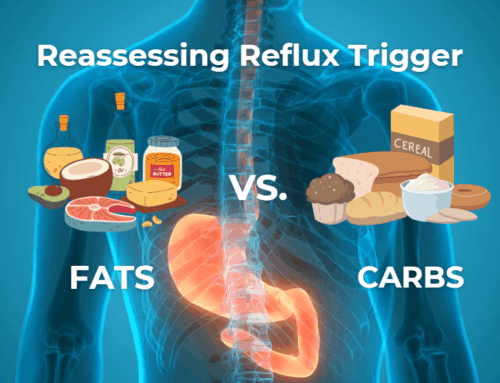
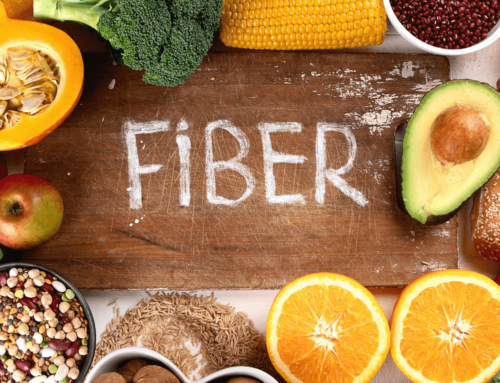
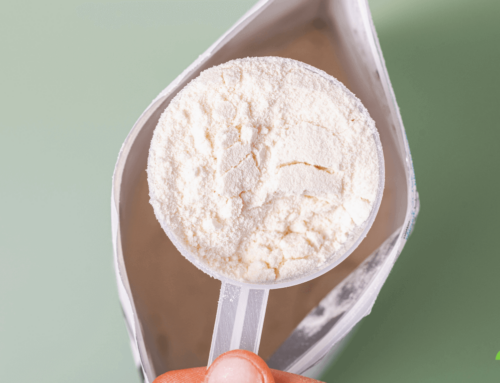

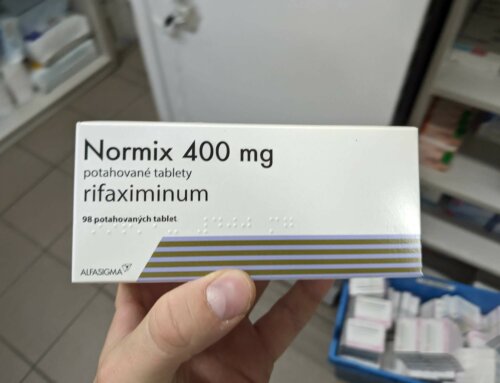
Greetings Dr. Robbilard,
What amazing work you have here. I have your book `’Fast track digestion’ and I follow your blog for a long time now. I want to complete the FTD, but I know from experience that Milk, heavy cream, cream cheese, any cheese, tomatoes, onions, peppers, coffee, walnuts, make my GERD and LPR symptoms flare up immediately. what adjustments can be done? I have a hiatal hernia of 1 cm, and I’ve been on prescribed PPI’s for more than 10 years, until two years ago when I read J. Wright´s book.
Hi Peter, Significant reduction in daily FP points often reduces other food sensitivities which may or may not have been the critical problem. If this approach does not work, you may consider our consultation program.
What a great article Norm! I will share it with many. Thanks for your great work and dedication. On a personal note I am glad you found this solution for yourself after 16 years of suffering – and that you did not stop there. You are now helping thousands of people. Excellent!
Thanks Gilles.
I was diagnosed with SIBO-C about 2 years ago. I have been on the Fast Track Diet and Herbal antibiotics and I am still suffering with SIBO. I don’t know what I’m doing wrong!
Hi LADD – Dr. Norm posted this on the DHI Facebook page.
These are 2 common questions that I get often:
– “The Fast Tract Diet did not work as well for me as others reported. What am I doing wrong?”
– “My “symptom A” got better, but now I have “symptom B” being on the diet. Why is this?”
7 questions to help you address these issues & tips:
1. What issue(s) are you addressing with the diet?
Some issues such as heartburn, bloating and cramping often respond in just a few days while other issues such as LPR (laryngopharangeal reflux) and autoimmune / leaky gut issues can take longer sometimes months to resolve.
2. How long have you been on the diet?
You might need to give it more time.
3. What is your daily FP?
The most common problem is your FP points being too high, or you’re consuming hidden higher FP carbs.
4. Are you incorporating the pro-absorption (gut friendly) behaviors outlined in the Fast Tract Digestion book / Fast Tract Diet app?
5. Have you read the troubleshooting sections in the book / mobile app?
6. Did you take actions based on the the troubleshooting tips?
7. Do you need individualized help at https://digestivehealthinstitute.org/consultation/ ?
Thank you Rhea. I will check it out.
I often wonder if having a colonoscopy could contribute to SIBO. Any thoughts on this. I could swear all my problems started after the procedure was done and progressively got worse.
Hi Sharon, The bowel preparation does affect the diversity of the microbiome as highlighted in this article which cites a couple of studies (https://bit.ly/2jVx4bS). But as time goes by there is a recovery as descibed in this study that followed colonoscopy patients out to 6 months (https://bit.ly/2kxnsaw). Whether or not this is a 100% recovery is still an open question. Here is another article referencing a study indicating that “using two separate smaller dosages of polyethylene glycol electrolyte solution appears to introduce fewer alterations to the intestinal microbiota than a bowel cleanse with a single, larger dose of MoviPrep (Salix)” (https://www.medscape.com/viewarticle/837467).
Intermittent fasting and limiting fermentable carbs in the diet seems a prudent course following this procedure.
I don’t know what the answer to your question is, but I had the same experience after having a colonoscopy. It appears to be a real problem for many. I would like to choose NOT having a colonoscopy ever again.
Great book Norman! I have hoped for an answer to my PPI problem for a long time. I was on those drugs for 7 years and they have done so much harm to my overall health and vitality. I’m hoping after I get through a few months of your fast track diet that I will regain better internal health in a few areas.
I too would like to know, like Sharon, if a colonoscopy could contribute to SIBO or other symptoms b/c my GI scheduled me for one to check to see if I may have polyps or several other problems that are causing my severe constipation. I do not want to have such an invasive procedure if it is not necessary.
Hi Nicole, There is no doubt that colonoscopy disrupts your micribiome. Unless the procedure is truly justified to your satifaction, or you have a family history of colon cancer, I would advise significant caution as the risk of suffering even more serious complications is 5 people in 1000 getting the test. https://bit.ly/2kbOR0H
Hello everyone.
I had some problems in the recent months, I used to follow a high protein diet (I like body building) and i’m also celiac.
It all started this may with a bit of reflux (solved with gaviscon) and some acne under my eyes (not really acne, i’m 30), but that were not a real problem.
Then I got a food poisoning and there all has gone so bad. Vomiting all night and diarrhea, for 3 days I couldn’t touch food, started to have GERD with nausea and air in stomach, after 2 months the doctor gave me PPI and gaviscon, but I had no relief.
In september I had a gastro, where they found Esophagitis and bile in the stomach, continued with PPI and changed a few other meds but got no improvements.
So I changed doctor, who touching me found out that my liver was a bit too big, sending me to do an ecography (which resulted in nothing bad, just a bit of fat liver) and prescribing prokinetics.
I’m now one month in to the new cure and still feeling bad after every meal, I dont smoke, I dont drink, my diet is good.
Do you think I should do a SIBO breath test? Any advice?
This thing is also ruining my social life cause I feel ill at ease everytime my friends ask me out for dinner.
Hi Andrew, You could get a SIBO breath test, but you could also just try the Fast Tract Diet. Get the heartburn edition and / or the Fast Tract Diet mobile app. Be diligent with the diet for the first couple of months and read the trouble-shooting sections and underlying causes chapter.
I had sigmoidectomy and hysterectomy due to complicated endometriosis in 2015. Since then I had either soft porridgy stools with undigested food ( every 2-3 weeks for 3-4 days ) or unpleasant constipation ( thin , tiny stools pieces ). I need to adopt a posture since my operation.
I was treated wih AB for Blastocystis hominis which cleared on a follow-up stool PCR testing. symptoms did not improve.
I also tried FODMAPS for nearly 3 months with little improvement. I reintroduced one group after another slowly.
overall nothing improved.
I have EDS type 3 .
I am taking Zn, Mg, omega 3, vit D3, supplements for over 4 months
have also tried bone broth for healing.
I am totally fed up
Hope you have some deeper thoughts
Hi Norman,
Thank you for all of the useful information. I just got your app and am finding it very helpful. I have a long history of IBS (fairly well controlled by limiting gluten), and a more recent diagnosis of GERD (but I believe I have LPR). I did PPI’s for a few months, they just gave me other stomach troubles, so I’m off now and trying to control everything with diet. One problem is there is so much information out there! My most recent attempt was going Paleo, which was ok for about the first week, but then I started having constant ringing in my ears and became dizzy almost all of the time. I introduced some “healthy” carbs (brown rice, quiona) back into my diet over the past week and the dizziness subsided and the ringing in the ears is getting a little better. Then I stumbled upon your website and see that you advocate for a super low carb diet to deal with GERD and IBS. So… do you have suggestions for how to combat the problems I’m having from a no-carb diet? Are potatoes, sweet potato, jasmine rice ok to help with these issues?
My other question is about carrots. I recently bought a juicer and have been enjoying fresh vegetable juice that includes quite a bit of carrot every day. I’ve read about how beneficial fresh vegetable juice is, and do not want to stop drinking it. It seems to me that carrot juice would be ok, since the cellulose is not being consumed. What is your take on consuming the juice of carrots or other high FP vegetables?
thank you so much!
What about SIBO with constipation ?
Do you feel the same rules apply ?
There are many causes of constipation which need to be ruled out if possible or confirmed and addressed. A good place to start is getting a lactulose hydrogen / methane breath test. You can also schedule a consultation with me.
HELP! I’m already on a Diverticulosis diet, Gastropresis Diet, now I have SIBO. WHAT CAN I EAT? I’m allergic to seafood, don’t tolerate much dairy, even drinking water hurts. You can’t live on just Eggs, Poultry and easy chew pork/beef. To much protein means MORE joint pain. I’ve eliminated all the foods I can and still can’t stop the PAIN. I’m finishing my first round of Rifaximin in 4 days. I’ve had 2 ER Trips for severe GI Spasms in Feb. Side Effect Queen where drugs are concerned.. Am Hypothyroid to boot NO SOY..These diets have wreaked havoc on my dental health, I’ve lost my lower molars, my gum line is receding badly, teeth are shifting in the jaw. Bleeding gums when you brush, I’m going to need thousands of $$ in extensive dental work which will be pointless if I can’t eat well. I take 40 Billion Probiotics multi-strain daily. These diets just are not working any more than the antibiotic is. Having GP was bad enough in pushing your toward being a Diabetic. It takes me 5 hrs to just digest 2 eggs. And the NUTRITIONIST WILL ONLY TREAT MEDICARE PATIENTS FOR DIABETES. GASTRO DOESN’T KNOW WHAT TO DO WITH ME. Neuropathy, Fibromyalgia, Hypothyroid, Degenerative Spine, Osteoarthritis, Osteoporosis, Enlarged Heart with small Mitral valve leak, Reflux, Hiatal Hernia, Barrett’s Esophagus, and none of the drugs are friendly. Seniors don’t have a fortune tucked away. And both Medicare and Tricare Life are Government Controlled, Total DICTATORSHIP health insurance. I turn 70 this year. This has been a 8 yr battle of constant PAIN.
Hi Molly, I feel for what you have had to endure in recent years. Have you tried the Fast Tract Diet? You may find that some of your specific intolerances diminish on the diet.
I’m down to 2 scrambled Eggs for breakfast it takes me up to 5 hrs to digest 2 eggs. Fluids are black coffee and filtered water but that is limited due to pain. It doesn’t help that my Diazide, Cardizem, and LOMOTIL are drying agents. I weighed 135 this morning. Food just plain HURTS no matter how small the amount. I’ve ordered some Prebiotics to go with my Probiotics. I’ve stumped my GASTRO and he is one of the best in the area, a pioneer in fiber optics use for colon screenings. Then I’m the Nightmare patient of all 4 of my Specialist due to my lengthy drug reaction list.
Hi Dr Robillard,
I read your book this weekend on IBS and also got your app. Thank you for all of your information. I’ve had SIBO for about a year and a half. Breath tested multiple times. I’ve tried low fodmap, SCD, (combo of both) Paleo, keto, low histamine etc. None really seemed to bring much relief. I do seem sensitive to most herbal treatments as well. At any rate, my question was, have you done the FP on the Physicians Elemental diet before? I was curious. Your diet seems to make a lot more sense. I wasn’t able to get enough carbs on the SCD/Low Fodmap diet as a lot of allowable carbs were fruits & sugar which I was trying to stay away from. It seems like all the diets helped in some areas and made other areas worse. Yours truly seems to make the most sense to me. So, thank you for your information. It was interesting to see some foods like garlic and celery as such a low FP since it’s such a high-fodmap food. But, since your approach is different it would make sense that there would be different allowable foods. Thank you
Eric
Hi Dr. Robillard,
I read your book and got your app recently. Thank you for all of your information. I posted a comment earlier but I forgot to clarify. Is there any way to find out the FP of the Physicians Elemental Diet Dextrose Free version? I have a hard time trying to find the glycemic index of that. The reason being is I am planning on using that for some meal replacements on an ongoing basis. I have a hard time believing it has a high FP as there are no sugar alcohols and very low sugars & fiber but, I am new to your program so I may be missing something. I am looking forward to trying your diet as I’ve tried SCD, Low Fodmap, Keto, Low histamine and paleo for ongoing SIBO issues. Thanks again for any help or guidance on this.
Eric
Hey Eric. The FP is zero. Good luck.